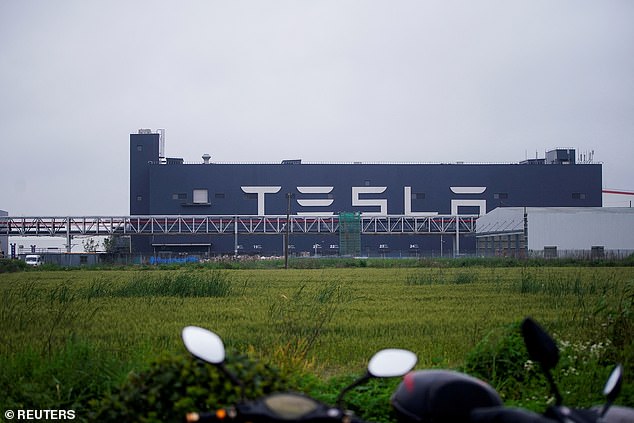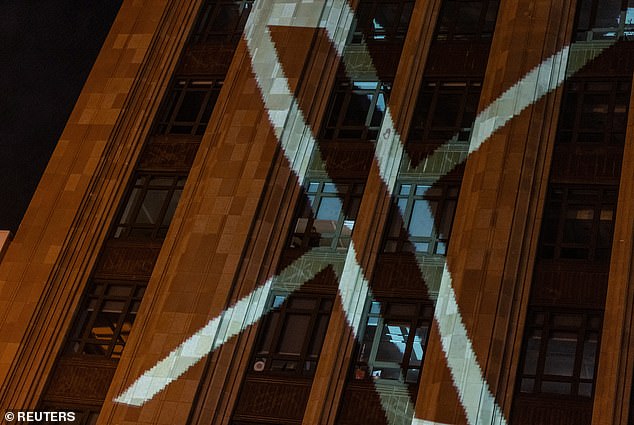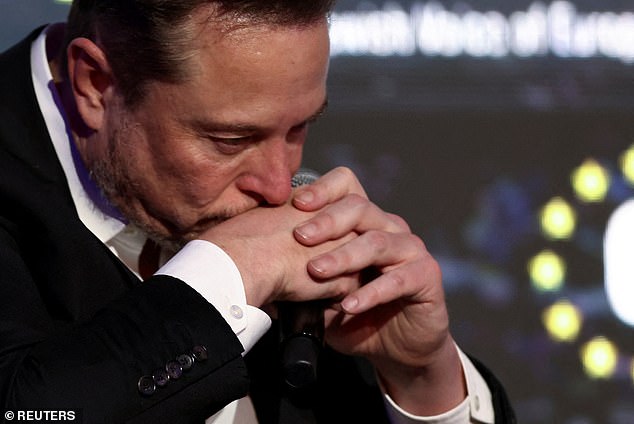Elon Musk’s $46 billion Tesla pay package in jeopardy as shareholders are advised to vote against his compensation and plans to move the electric vehicle maker to Texas
Tesla shareholders are being urged to reject a $46 billion pay package for CEO Elon Musk that, if passed, would be the largest compensation package for a CEO in corporate America.
Last weekend, proxy consulting firm Glass Lewis produced a 71-page report citing several issues reasons, including the ‘excessive size’ of the wage agreement.
Glass Lewis also noted how Musk’s proposed compensation could also dilute shareholders’ existing interests in Tesla.
The report also raised concerns about Musk’s “series of extremely time-consuming projects” that have expanded with his high-profile purchase of Twitter, now known as X.
Tesla shareholders are being urged to reject a $46 billion pay package for Elon Musk
The pay package was proposed by Tesla’s board of directors, which has repeatedly come under fire for its close ties to the billionaire.
The package does not give Musk a salary or cash bonus, but sets rewards based on Tesla’s market value, which will rise from $50 billion to as much as $650 billion in the decade from 2018.
According to LSEG data, the company is currently valued at approximately $571.6 billion.
In January, Judge Kathaleen McCormick of the Court of Chancery in Delaware overturned the original pay package that was originally approved in 2018.
In the ruling, Judge McCormick cited Musk’s “extensive ties” with board members and agreed to drop the package, which was once worth as much as $55.8 billion.

The package proposed by Tesla’s board rewards Musk based on Tesla’s market value

There are also concerns about Musk’s “series of extremely time-consuming projects” that have expanded with his high-profile purchase of Twitter, now known as X.
Musk then attempted to move Tesla’s state of incorporation from Delaware to Texas.
Glass Lewis also criticized the proposed move to Texas as offering “uncertain benefits and additional risks” to shareholders.
Proxy advisors’ recommendations can influence how shareholders vote, as institutional shareholders look to them for advice.
Last month, Tesla then re-proposed the compensation package, which consists of a ten-year grant of stock options.
The company urged shareholders to reaffirm their approval of the compensation at the June 13 meeting.
Shareholders who support the compensation say Musk deserves to be rewarded for meeting performance goals.
To approve the pay package, a majority of shareholders must vote to support it, with the exception of Musk’s stake of about 13 percent and a smaller and much smaller stake owned by his brother Kimbal Musk.
Glass Lewis had previously advised against voting for the pay package in 2018, with similar concerns expected to persist in 2024.

A proxy advisory firm has raised concerns about the “excessive size” of the compensation package and is advising shareholders to vote against it at a June 13 meeting.
“The excessive size of the award, both on a pure dollar basis and in terms of the dilutive effect upon exercise, remains very important,” the analysis reads.
“The rationale given by the company does little to address these concerns given their proportionate magnitude.”
In an interview earlier this month, Tesla’s chairman Robyn Denholm told the Financial Times that Musk deserves the pay package because the company has achieved ambitious targets for revenue and share price.
Musk became CEO of Tesla in 2008. In recent years, he has helped improve results, helping the company post a $15 billion profit after a $2.2 billion loss in 2018, producing seven times more vehicles.
The proxy advisor recommended shareholders vote against the re-election of board member Kimbal Musk, the billionaire’s brother, while recommending re-election to former 21st Century Fox CEO James Murdoch.
Musk currently has a net worth of $197.3 billion, which puts him at number three Forbes real-time billionaires list with most of his assets tied up in shares of his companies.
Musk owns 13 percent of Tesla shares, but announced an offer earlier this month to secure a quarter of the voting shares.
“I feel uncomfortable growing Tesla into a leader in AI and robotics without having ~25% voting control,” he wrote on X.
“Enough to be influential, but not so much that I can’t be overthrown.”
